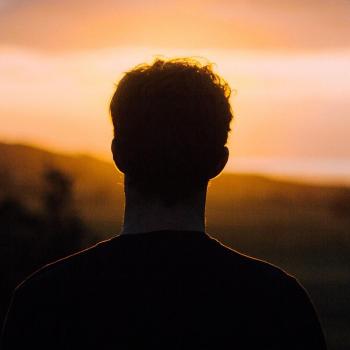
1. When atrocities like this happen so close to home, we sit up and pay attention.
The British media has, predictably, been all over the Paris story. I’m sure I’m not the only one to have been really shaken up by it. This is to be expected – France are our geographical neighbours, they are culturally very similar to us and we find it easy to empathise.
The horrendous truth is that things like this happen around the world on a fairly regular basis, but we largely ignore them. Somehow when 147 students are killed in Kenya, or mass executions are carried out in Syria or Iraq, we barely notice.
Why? Because those lives don’t mean as much? Because countries like that are used to it?
It is natural to be impacted by something more when it is close by. Many Brits have been to Paris, not many have been to Kenya or Syria. But with today’s technology, I don’t think we really have any excuse. We have the ability to know in great detail what goes on all over the world, we just often choose not to know. That highlights some pretty disgraceful aspects of our collective psyche that many of us would rather remain hidden.
That said, it’s got our attention now. Let’s turn our outrage into a driving force for good.
2. Events like this highlight what we already know about humanity’s enormous potential for evil. This is nothing new.
It’s easy to feel like things are getting worse. That the world is becoming more messed up. In a sense that’s true – some things are getting worse, but other things are getting better all the time.
As long as people have been on this planet there has been conflict and violence. There’s something about human nature that means we naturally lean towards it.
To suggest that Islam is to blame for terrorism is just plain ignorant. Christians who assert this need to have a long hard look at their own religion and the atrocities it has been associated with over the centuries.
Many would argue therefore that religion itself is to blame and we’d be better off without it; I think people find reasons to kill each other whether or not they use religion to justify it. The problem is with human nature.
3.The ISIS fighters are victims of dehumanisation, just as much as those they dehumanise.
When faced with media images of ISIS fighters holding guns in the air and smiling, it’s easy to imagine that these people are pure evil. That they are a different breed of human, and that what we need to do is wipe them out, drive them to extinction.
The more difficult thing to imagine is that these are people who started out just like you and me. They have mothers. They grew up in a family, made friends, hurt people and were hurt, nurtured hopes and dreams, searched for meaning and purpose in life. Just like any one of us.
Something along the way led them to believe, at a particular moment in time, that joining that group, fighting that cause and seeing the world in that way was the right decision. I am not in any way justifying their actions, I just don’t think these things are ever as simple as we like to believe.
I have no idea what their lives have been like; whether they have suffered huge injustices as a result of global inequality, war or political corruption, or whether they had a privileged upbringing but felt that their lives lacked meaning and purpose. Probably all of the above and everything in between. Either way, I don’t think ISIS fighters are born evil, I think they are victims of something much bigger.
ISIS fighters dehumanise themselves when they are hateful and violent towards their fellow human beings. In doing so they dehumanise others, viewing people as unimportant and worthless in order to justify violence and murder. And we dehumanise them by assuming that they are intrinsically evil, a breed of human entirely different to us.
4. Events like this bring out the absolute best in people as well as the absolute worst.
Humanity has enormous potential for evil, but also an incredible capacity for good.
When terrible and tragic things happen, there are always people who demonstrate extreme bravery, compassion, strength, selflessness and unity.
This is the other side of human nature, the side we need to nurture and embrace.
5. We can respond to attacks like these by becoming fearful, suspicious, hateful, vengeful and violent. Or we can let them teach us to embrace life, work towards radical unity and peace and demonstrate extreme love.
There really is no point in being afraid. If we live in fear we lose our freedom. Let’s instead be reminded to embrace life, to appreciate everything and everyone we have, and to live every day to the full as best we can.
Let’s not exacerbate the situation by putting blame onto religious or ethnic groups, increasing segregation and hostility.
Let’s fight disunity by being radically unified, by offering unexpected love, respect and friendship to those who are different to us.
Let’s find imaginative ways to fight extreme hatred – not with even more extreme hatred, but with extreme love.
Let’s not allow darkness to extinguish the light.
Let’s get it burning brighter than ever.
Image via Pixabay












